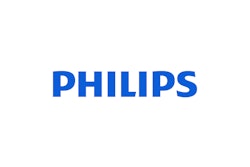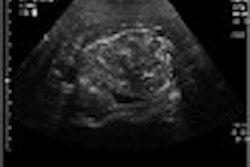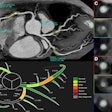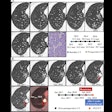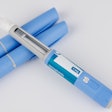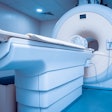Philips Medical Systems of Andover, MA, has recently upgraded products in its x-ray, MR, and ultrasound imaging lines.
At the top of the list are Food and Drug Administration clearances for five of the company’s Intera 3.0T SENSE MRI coil technologies.
The coils cleared by the FDA are for head, spine, cardiac, and general-purpose imaging. The head coil features an open design and a signal-to-noise ratio optimized for brain imaging, permitting high-resolution image capture. The spine coil is a 12-element phased-array coil designed for the cervical, thoracic, and lumbar spine. The cardiac coil is a six-element phased-array coil created for optimum coverage of the heart and coronary vessels in a 3-tesla environment.
Philips has developed two general-purpose imaging coils, Flex-M and Flex-L. Flex-M is intended for imaging in a wide variety of applications, such as shoulder, elbow, and knee imaging, as well as pediatric applications. Flex-L is intended for whole-body imaging, and both coils employ phased-array technology that enable rapid, high-resolution studies.
Philips has also recently released improvements to its family of x-ray products with a new floor stand and mobile x-ray unit. Its BuckyDiagnost FS (floor stand) with floor-mounted tube support is available with a ceiling-suspended tube stand, as well as a control grip to ease handling. BuckyDiagnost FS is available in three configurations: FS standard is available with tomography options; FS compact is equipped with an L-shaped tube support arms for small rooms; and FS fix provides a dedicated solution for chest rooms.
The company will begin deliveries this month of its Practix 160 mobile x-ray unit, the successor to the older Practix 100+. The device is specifically suited for chest x-ray work in an intensive care unit, Philips said. It features a 16-kW power output and a short front leg, and is available with an integrated dose-registration option.
Philips’ ultrasound division has released a new transducer, OmniPlane III TEE. The transducer is designed for the echocardiography lab and operating theater, the company said. The transesophageal echocardiography transducer allows greater bandwidth to accommodate harmonic and contrast imaging, eliminates noise artifacts, and features bi-plane and 3-D dataset acquisition. It also boasts improved ergonomics and patient comfort design features.
In other news, the company has closed several deals in the U.S. and Europe. It reported that it was awarded a contract for two Mx8000 IDT Advanced Performance CT scanners at the Ochsner Clinic Foundation in New Orleans. One CT unit is being utilized in the radiology department while the other is being used for cardiology at the Ochsner Heart and Vascular Institute.
The Vanderbilt University Medical Center in Nashville, TN, has purchased three Mx8000 IDT 16-slice CT systems and one Mx8000 Dual CT system. Two of the 16-slice systems are slated for the radiology department, in addition to the Mx8000 Dual system. The third 16-slice system will be installed in Vanderbilt’s new Children’s Hospital, currently under construction.
Philips is also scheduled to install two Mx8000 16-slice IDT CT scanners at the University of California, San Francisco’s new outpatient and radiology center, scheduled to open this fall. One CT scanner will be used for routine clinical imaging and the other will be used for clinical and radiological research.
The research will be compared to data gathered from a previously installed Philips integrated MR and x-ray imaging suite to assess the advantages of each procedure for different applications. Initial applications for the Mx8000 CT systems include neurology, cardiology, and pulmonary diagnoses and research, the vendor said.
On the IT front, the company said it has sold its Diamond PACS archive system to Houston Healthcare Systems of Warner Robbins, GA. The Diamond archive product incorporates Fast RAID in the first archive tier for the most actively accessed exams; alternate RAID levels for near-term storage; and tape for disaster recovery and fail over applications as the least expensive storage option.
Philips has also sold an Intera I/T Neuro MRI scanner to the University of Kiel, in Kiel, Germany. The Intera I/T Neuro scanner will be tasked for brain imaging to assist with neurosurgery, tumor resections, brain biopsies, and functional brain interventions, Philips said.
Finally, Magee-Women’s Hospital in Pittsburgh, a University of Pittsburgh Medical Center affiliate, has ordered 13 HDI 5000 ultrasound systems and 12 HDI 4000 systems with Live 3D, according to Philips.
By AuntMinnie.com staff writersJuly 3, 2003
Related Reading
Philips restructures North American sales/service, June 30, 2003
Philips launches new products, upgrades at SNM, June 23, 2003
First Gemini install for Philips, June 20, 2003
Philips adds to PACS, DR offerings, June 13, 2003
Philips adds color flow to Live 3D Echo, June 12, 2003
Copyright © 2003 AuntMinnie.com






